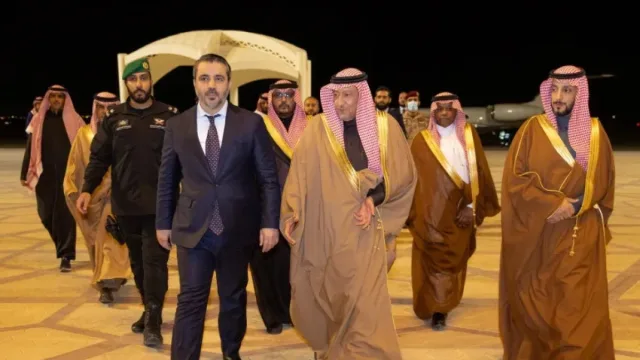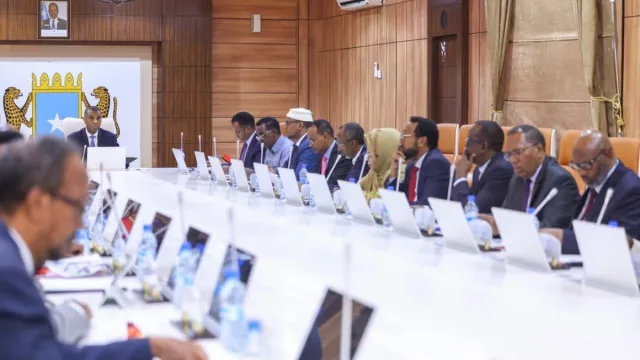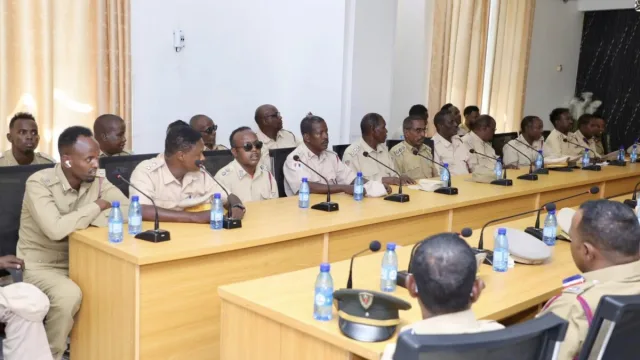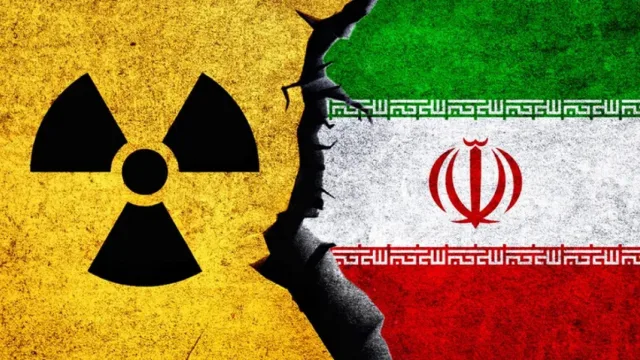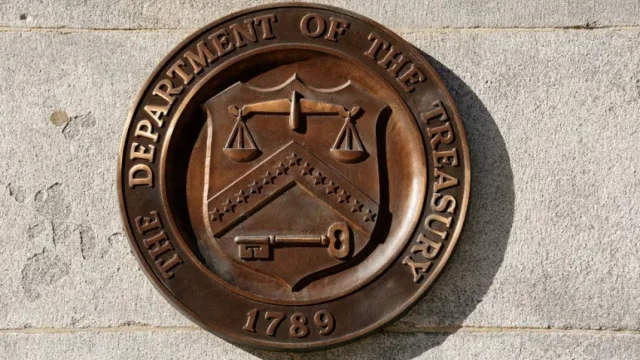It is nearly a month since Somali President Hassan Sheikh Mohamud and Prime Minister Abdiweli Sheikh…
 It is nearly a month since Somali President Hassan Sheikh Mohamud and Prime Minister Abdiweli Sheikh Ahmed disagreed over a reshuffle on the cabinet. The friction between the top government officials has caused division between the cabinet itself and the country’s Federal Parliament. Two sessions of the Parliament was put-off in a noisy protest by MPs opposing a no-confidence motion against the Prime Minister which was proposed by the Office of the President and close allies.
It is nearly a month since Somali President Hassan Sheikh Mohamud and Prime Minister Abdiweli Sheikh Ahmed disagreed over a reshuffle on the cabinet. The friction between the top government officials has caused division between the cabinet itself and the country’s Federal Parliament. Two sessions of the Parliament was put-off in a noisy protest by MPs opposing a no-confidence motion against the Prime Minister which was proposed by the Office of the President and close allies.
In most of the world’s parliamentary democracies, it’s rare to see presidents and prime ministers bickering, since their roles and responsibilities are more or less distinct and rarely overlap. However, in many African governments, power struggles between presidents and prime ministers are quite common, even when the offices have clearly defined constitutional roles.
But something’s not working. Somalia’s three most recent presidents have each appointed three prime ministers, a rapid turnover rate indicating ongoing infighting between representatives of competing clans who are loathe to cede power to each other. As a result, Somalia has been plagued by a political process that is based on competition rather than cooperation and compromise. The current fallout between the president and the prime minister is a continuation of the political stalemate that has hampered Somalia’s progress for decades.
The political wrangle between the President and Prime Minister remains unresolved and the international community has expressed concern over the political turmoil which will significantly undermine the 2016 vision.
Who are ‘’Damul Jadiid’’?
Damul Jadiid when translated means ‘’New Blood,’’ is a faction or splinter group from Al-Islaah- a moderate Somali Islamist movement formed in the late 1970s and affiliated with Egypt’s Muslim Brotherhood.
The tragedy is though the most organised forces in today’s Somalia are both covert sects and secret cliques than openly structured political groups with transparent political agendas. It is not encouraging at all to learn that Damul Jadiid in Mogadishu and Amniyat – al-Shabaab’s secret service unit responsible for carrying out assassinations- have preponderant positions at both ends.
During Somalia’s civil war, Al-Islaah steadfastly eschewed violence, but in 2006 a group of activists, rejecting the conservatism of the Al-Islaah ‘’Old Blood’’ leadership, aligned itself with the council of Islamic courts and took part in the armed resistance against the transitional federal government and Ethiopian occupation.
Following Hassan Sheikh’s election as president, adherents of Damul Jadiid assumed key positions of influence within the government; the ministers of interior and security and Powerful ministry of Justice and Constitutional affairs.
The ways in which Damul jadiid may seek to shape the course of Somalia’s ongoing political transition remain to be seen. Some critics attribute the Somali Federal government’s assertively, centrist approach to governance to Damul Jadiid ideologues rather than the president who was both reputed to be political pragmatist before taking office. The SFG’s actions to date also suggest that Damul Jadiid is in part responsible for reorienting Somalia’s foreign policy away from IGAD and the African Union toward the wider Arab, notably the like-minded governments in UAE, Egypt and Turkey.
No wonder, Somalis inside and the Diaspora were hopeful the establishment of the new government in September 2012 would be a game changer and the country would change course. There was a great deal of optimism that the new leaders will deliver. The international community had hoped that Somalia would soon stabilize. However, the new Somali government had dismally failed to live up to the expectations. Its failure is self-inflicted mainly political and a problem of governance than the lack of internal and external support or obstacles created by Al-Shabaab. This is not to say that the insurgent group has been fully defeated. The recent attacks on a UN compound, Presidential Palace, and other government centres shows that the security situation is still precarious and the terrorist militia al-Shabaab is still active. Nonetheless, the main obstacle to the speedy stabilization of Somalia remains to be the misguided and erroneous political strategy of the group that controls the current Somali government in Mogadishu. This might seem a paradox, but it is real.
Regardless of the true extent of Damul Jadiid influence on government policy and conduct, its proximity to the levers of power has contributed to the perception that SFG decision-making is determined, at least in part, by an unelected and largely unaccountable interest group. That is a depiction the SFG must work hard to overcome if it is to succeed in binding Somalis more closely together rather than driving them further apart.
Angered by sacking of closest ally
In Somalia, the president is the head of state. His powers include appointing a prime minister and serving as commander-in-chief of the armed forces, which includes the power to declare of a state of emergency or war. The prime minister is the chief of the cabinet, guiding and overseeing the work of the other ministers. However, despite these neatly separated roles and responsibilities, Somalia is once again having great difficulty in governing itself under a power sharing system.
It is believed that President Mohamoud opposed the firing of a very close friend Farah Abdulkadir who was a member of the cabinet and holding the Ministry of Justice and Constitutional affairs.
In recent months, the judicial institutions- who are independent from the government- were raising complaints about the minister. The chief justice accused the Ministry of Justice of interference in the independence of the judiciary. In July, the president approved appointment of a new attorney general appointed by, after the predecessor Abdikadir Mohamed Muse was dismissed by Farah Abdulkadir. But the chief justice questioned the legality of Muse’s dismissal, and promised an investigation. In turn, the attorney general’s office has claimed that dozens of judges are operating without having been properly appointed, with the president dismissing 21 judges in October.
A night before the reshuffling, the President and Prime Minister hold a closed-door meeting which ended up without an outcome concerning the reshuffling. Upon hearing the reshuffling, President Mohamoud issued a press statement arguing that the action taken by Prime Minister as ‘’null’’ and ‘’void’’. He called for the sacked ministers to continue with their jobs.
New way of rolling down Prime Minister
After the no-confidence motion against Prime Minister Abdiweli Sheikh failing to success in the parliament, Damul Jadiid members initiated a new way of ousting Prime Minister.
Last week, almost 14 members of the cabinet issued a letter calling for the Prime minister to resign. But, the Prime minister himself stressed that ”any minister who feels cannot work under the current circumstances” should resign and a ”replacement will be made immediately”.
Many believe also that the efforts by the Damul-jadiid to collapse the government only demonstrates their own fear and determination to block the current government’s ability to conduct its business and advance the aspirations of all of the Somali people.
Recent Obstacles created by the Damul Jadiid members in the Cabinet
President Hassan Sheikh Mohamoud and Damul Jadiid cabinet members run most of the government duties. In the past, members of the cabinet from the ‘’New Blood party’’ using the umbrella of the government created many obstacles. Therefore, the government helped not only to perpetuate old problems but create new ones. Its policies helped to antagonize most of the political and armed forces in the country. A case in point is its antagonistic posture towards the politico-military actors in Galmuudug, Ahlu Sunna wal Jama’a, Jubaland- which it first rejected and then recognised and the Puntland Administration. In many cases, it tried to act like a strong government, if not an empire, wanting to cynically exploit clan differences and dictate terms rather than realistically seeking negotiation and compromise. All its policies show how much little it has learned from distant and recent history of the country. No wonder the government exists only in Mogadishu and has no influence in other areas of the country.
The Somali government is weak and unable to mobilise support among the major clans and regional administrations. It lacks both the political framework and military capacity to stabilise and transform Somalia’s two decades long civil war. Hence, it is unable to protect its population and indeed unable to protect itself. Its main asset is international dimension and support. It is crucial that the central government should have tried to extend its authority, mainly to the regions, through political means only by creating consensus and behaving less belligerent.
It seems they have forgotten the hard lesson that stabilizing Somalia and establishing a strong government requires consensus building among the major clan and regional-political forces in the country. The tragedy is that there is no consensus and agreement among the three major clan affiliations on how to structure the Somali state and govern the country.
Should Somalia try a new system?
Meanwhile, precious time is being wasted on political brinkmanship rather than dealing with the innumerable challenges facing the country. Security, reconciliation, the economy, education, infrastructure, and healthcare are a few of the many issues that do not get addressed so long as the president and prime minister are locked in a power struggle. Consequently, many Somalis have lost faith in their leaders’ ability to unite the nation, which may lead the country towards another civil war and away from economic prosperity.
Therefore, the time has come for Somalia to try a different system of governance. Somali constitutional experts should review and amend the constitution from a power sharing system back to political party system in which a president and vice president from the same party are elected on the same platform.
The clan-based system has had its chance. Only through a party system, overseen by an electoral commission, can Somalia put together a government with the capacity to solve the country’s unique challenges—and bring about the political stability that has eluded it for the last two decades.
This being generally true, looking from all angles, Damul Jadiid’s political formula remains to be the main culprit. It made futile and I must say provocative attempts to establish preponderance over different regions of Somalia.
Consequently, there is the very real possibility Somalia could remain unstable for quite a while. Such a situation would, of course, continue to provide havens for extremist elements both foreign and domestic stemming from exceedingly weak, insufficiently coherent and geographically constrained national governance.
Abdirisak Mohamed
Horseed Media
